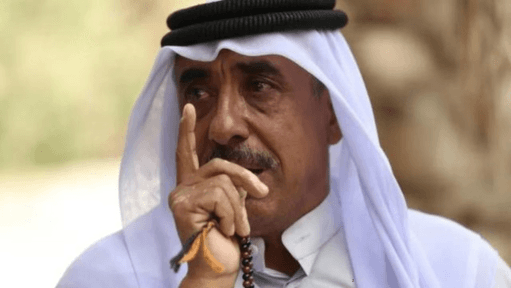
Iraqi Father Takes Legal Action Against BP Over Son's Death Linked to Flaring
Julood alleges that flaring at a BP-managed oil field contributed to his son Ali's leukemia
An Iraqi father is initiating legal proceedings against the UK-based oil giant BP concerning the passing of his 21-year-old son. Hussein Julood alleges that the practice of burning off gas, known as flaring, at a BP-managed oil field in Iraq contributed to his son Ali's leukemia.
A 2022 investigation by BBC World Service revealed that Ali's village, situated within the field, had elevated levels of cancer-causing pollutants associated with flaring.
BP acknowledges the concerns raised and expresses its commitment to facilitating change. The case marks a significant instance of an individual taking legal action against a major oil corporation regarding its flaring practices.
The claim, outlined in a letter seen by BBC News, asserts that Ali's leukemia and subsequent demise were caused by "toxic emissions from the Rumaila oilfield," for which BP, as the lead contractor, shares responsibility.
Julood seeks compensation covering his son's medical expenses, loss of earnings, funeral costs and the emotional toll of losing his son. Speaking to BBC News, Julood emphasised the broader implications of his case, representing not only himself but also the local community suffering from pollution.
Wessen Jazrawi, a partner at Hausfeld & Co representing, underscored the significance of this environmental litigation, aiming to hold major carbon-emitting companies accountable for their harmful practices.
Flaring, the burning of gas released during oil extraction, poses significant health risks due to its emission of cancer-causing chemicals like benzene. The Rumaila oil field, according to BBC analysis of World Bank data, records the highest documented levels of flaring globally.
Julood's primary objective with his claim is to halt regular flaring in Rumaila to prevent further harm to families in the region. Ali's battle with Acute Lymphoblastic Leukemia began at the age of 15, undergoing extensive treatment before his passing at 21. His father describes him as a vibrant individual, whose untimely death deeply affected the family.
Ali's documentation of life within the Rumaila oil field, along with pollution monitoring conducted by the BBC, revealed heightened exposure to carcinogens among local residents, raising concerns about increased leukemia risk.
While the Iraqi government owns the Rumaila oil field, BP leads its management through the Rumaila Operating Organisation (ROO) consortium. BP's flaring emissions from Rumaila in 2021 surpassed 3.7 million tonnes of CO2 equivalent, a figure exceeding the annual emissions of two million UK cars.
Although the incident occurred in Iraq, Julood can pursue the claim in UK courts due to BP's UK headquarters. BP's response emphasises its support for ROO's efforts to reduce flaring and emissions at Rumaila.
Despite assurances from BP, Julood observes continued flaring and pollution, highlighting the disparity between promises and action. Julood alleges additional cancer-related deaths in the community since Ali's passing, underscoring the urgency of addressing environmental concerns.
BP faces the choice of entering compensation negotiations or contesting the claim, with the latter potentially leading to a court hearing in the UK.
For any enquiries or information, contact ask@tlr.ae or call us on +971 52 644 3004. Follow The Law Reporters on WhatsApp Channels.